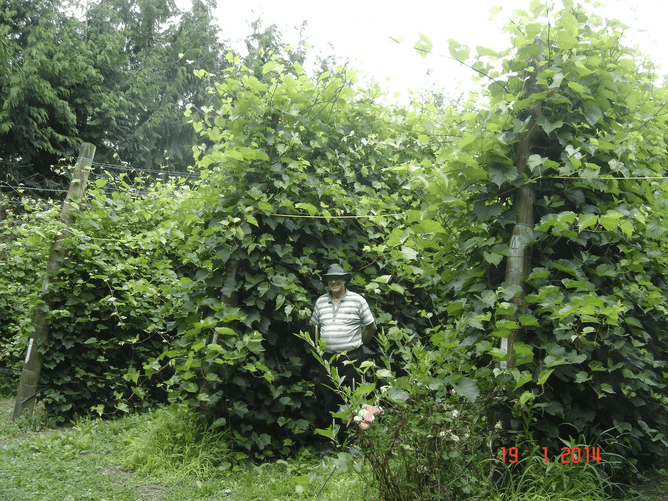Cells construct protein from nitrogen. Chlorophyll is created from protein and photosynthesis. Photosynthesis, the most important process on the planet, takes place in the presence of sunlight and chlorophyll. Nitrogen is critical to life itself, being the most abundant nutrient required for plant growth. It forms 16% of all plant proteins and is a vital component in chloroplasts - the factories that synthesize energy from sunlight. Nitrogen is 78% of the air we breathe. There are 74,000 tonnes of nitrogen above every hectare on earth, but pastures and crops struggle to get enough. How can we change that?
Several types of bacteria fix atmospheric nitrogen. They include Rhizobia, associated with legume nodules, and Azotobacter being free-living bacteria that are assisted by compost, but not by manure. Nitrogen produced by leguminous nodules can benefit associated plants, especially if the pH is above 6.0. Azotobacter in the rhizosphere needs oxygen and carbon to survive. They cannot live in anaerobic conditions so often created in modern farming. The highest numbers are found in soils with the most humus. Our soils are losing humus. When chlorophyll is produced in a new plant, a specific flora develops in the root zone. The majority of them are the same as those found in animals and humans, namely those that produce lactic acid. (These are also the ones required in a healthy effluent pond.) They also need cobalt which enables them to construct vitamin B12. In general, water-soluble mineral salts hinder the binding of molecular nitrogen leading to the death of Azotobacter. They were the creatures responsible for the high yields of grain obtained in Ukraine up until the 20th century without fertiliser inputs.
To increase humus levels in soil and employ this free way to supply nitrogen to our pastures and crops naturally; manure has to be composted and applied as compost and not as manure. The legume content of pastures and crops needs to be increased e.g. as in herbal leys; and we need to employ cover crops and inter-cropping to supply deficient trace elements to the soil, especially cobalt. Cobalt can be hugely improved by the addition of some yeasts. We also need to improve the environment for microbiology through better soil calcium and magnesium percentage. Plus, we need to reduce the amount of water-soluble fertiliser used and buffer it with carbon-rich substances.
Legumes can supply up to 400kg/ha of nitrogen. In addition, soil fungi can supply up to 180kg/ha, and high earthworm populations up to 600kg/ha. If 4% humus soil amounts to 40t, and contains 5% nitrogen; that equates to 2,000kg of organically bound nitrogen per hectare. This form is not leached from the soil on a yearly basis and is safe. To supply that much with urea would cost >$1,200/ha and be harmful to soil, crop, and the environment. Excess unbound nitrogen burns out organic carbon and contributes to climate change. (1kg of excess N can account for 100kg of carbon.) When the conditions are right, bacteria on maize plants can produce up to 30% of the total nitrogen requirement from the atmosphere.
200kg/ha of chemical nitrogen requires 400kg/ha of lime to prevent a pH decrease. Nitrogen management is one of the most important issues in our quest to build both profitability and sustainability. Nitrogen toxicity is a significant cause of loss in production when nitrogen is overused or misused. Potassium and calcium will inevitably be deficient when plant nitrogen levels are excessive, and this can lead to increased pest and disease pressure.
Biological nitrogen fixation can be carried out by free-living, associative as well as symbiotic species of bacteria, providing 3 or 4 times the nitrogen for plants than chemical fertilisers produced by industrial processes. Plants correctly growing in healthy high organic matter soils free from agrochemicals are not limited by nitrogen. Furthermore, such soils provide other nutrients and include the enhanced capacity to retain water.


